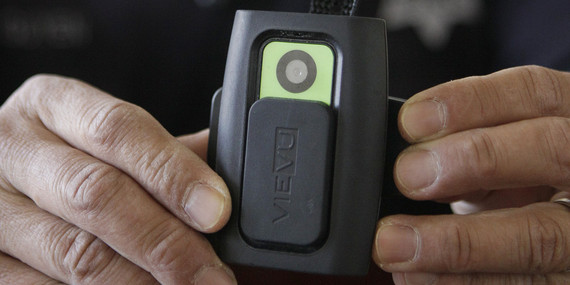
Amidst the spasm of criminal justice reforms recently entered into the mainstream political discourse, police body cameras have been routinely lifted up as an essential measure of accountability and a key to repairing fractures between law enforcement and policed communities. The police killing of Michael Brown in Ferguson, Missouri -- and the militarized response to protests there -- prompted President Barack Obama to pledge $263 million in federal grants to help municipalities fund body cameras and training.
In December of last year, locally, the New York Police Department rolled out its own 54-camera pilot program, which could be set for expansion to 5,000 cameras in the coming months. A second body camera proposal, initiated through the Floyd v. City of New York lawsuit is apparently on hold. New York City Mayor Bill de Blasio, Public Advocate Letitia James and Police Commissioner Bill Bratton all support the technology.
Yet the police shooting of 17-year-old Laquan McDonald last October in Chicago -- captured on a responding officer's dashboard camera -- and the apparent efforts of City officials to prevent the public from viewing the recording, have shown us, in the most horrific way possible, the limitations of this medium to improve accountability. If the records are created, stored and controlled by the police, and by extension the city, any accountability they might create will be vulnerable to the whims of political calculus or bald-faced self-serving corruption.
While Chicago's mayor and police commissioner fought to keep the video private, a court order forced the recording into the public, thanks to the dogged efforts of journalists and lawyers; only once the City was forced to hand over the tape was the officer, Jason Van Dyke, prosecuted for killing McDonald, more than 400 days after the initial incident. Many have suggested that the prosecution would never have come if the City had succeeded in keeping the video under wraps - an allegation that Cook County State's Attorney Anita Alverez denies, but nevertheless casts doubt on the ability or willingness of the police, prosecutors or even the City administration to hold individual officers accountable unless forced to do so. The New York Times editorial page called it a cover up.
A bit buried in the weeds of wider criminal justice reform discussions is an issue Hon. Alex Kozinski describes as "an epidemic of Brady violations."
What Kozinski, the Chief Judge of the U.S. Ninth Circuit Court of Appeals, describes, to the layperson, is the unwillingness of police and prosecutors to hand over evidence to defense attorneys that might prove useful to a defense in a criminal case. Think of this as hundreds of thousands of mini-cover ups happening every day across the country; admittedly in Brooklyn (and luckily for the residents here) we have it better than most. But there is something patently wrong with a system wherein being arrested in Brooklyn gives you a better shot at a fair trial when compared to Manhattan, simply because the prosecutor has agreed to hand over more of the evidence they have in a timely way.
The body camera plan, as currently described for New York City, is rife with the potential to exacerbate this problem, most clearly because body camera footage is categorized legally as a part of an officer's personnel file, and thus mostly off-limits to the defense attorneys. Bratton has said that under no circumstances will body camera footage be made available to the public. That leaves us in the potential situation of receiving body camera footage only when it serves the NYPD and the prosecution, not when it exonerates our clients or incriminates an officer. Such a scheme favors neither justice nor accountability and is one that we, as public defenders, often the last line of defense against executive power, could never support.
The criminal legal system is not heavily invested in holding police officers accountable. Our attorneys recently secured a win for a client after a judge determined that the police investigating the crime he was accused of had a history of lying in court and that our claims that the officers may have planted a gun on our client were credible.
None of these officers have been arrested or charged or in any other way been held accountable for this injustice.
Much like the story of Laquan McDonald, the initial facts presented by the NYPD following the police killings of Ramarley Graham and Eric Garner were inconsistent with civilian video recordings of the incidents that were later made public. No police footage of those incidents, if any existed, was ever brought forward.
Body cameras join facial recognition software, domain awareness systems, remote fingerprinting, X-ray scanners and a whole host of technological advances that are pushing law enforcement into new territories that bump more regularly into protected civil liberties. While these tools may increase the efficacy of arrest and punishment, relying on them to provide transparency and accountability will never be more than a hollow talking point unless the controls are taken out of the hands of the police.

